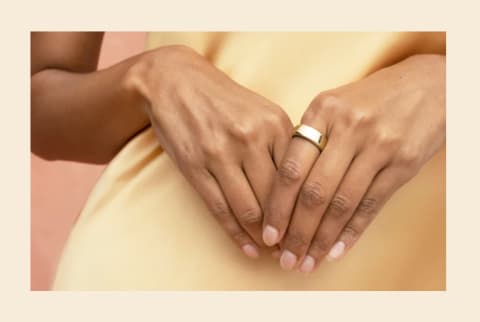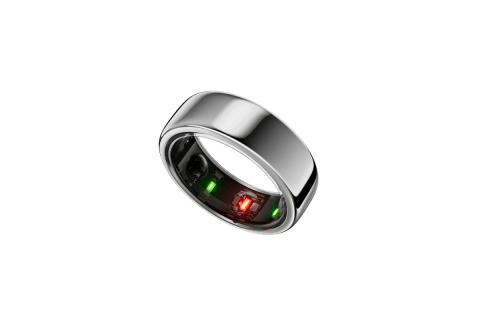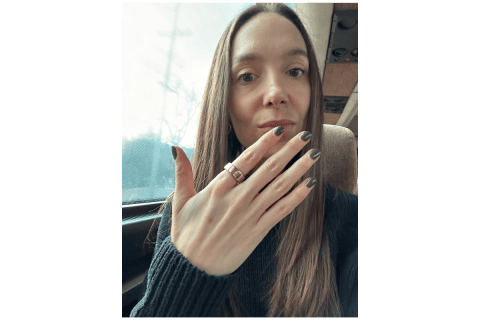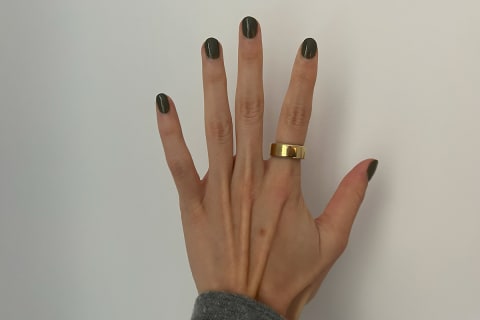Advertisement
Oura's Latest Features Help You Take Control Of Your Heart Health Like Never Before


Heart disease is the leading cause of death globally, but it's also largely preventable. Research suggests about 80% of cardiovascular disease could be prevented—and yet, until you experience complications, there's often an air of mystery around the state of your heart health.
Most mainstream health trackers are used primarily to optimize sleep, activity, and fitness performance—but Oura (my personal favorite wearable) is rolling out two new tracking features that could change the game for how well users understand the state of their cardiovascular health and how to optimize it.
Below, learn more about Oura's new heart health features and why they might be the key to taking better control of your heart health and boosting your longevity.
What is Oura?
Now on its third variation, the Oura ring is a sleek wearable device that offers in-depth health tracking to optimize your sleep, fitness, health, and well-being.
Over the years, Oura has added noteworthy features such as a cycle tracking integration with Natural Cycles, stress monitoring, illness detection, and more.
Worn by many longevity experts, athletes, and half the mindbodygreen editorial staff, the discreet ring tracks metrics such as heart rate, heart rate variability (HRV), and your various sleep stages.
The brand uses highly accurate sensors similar to those in medical-grade devices at hospitals, gathering samples 250 times per second.
Fun fact: Psychiatrist and neuroscientist Dave Rabin, M.D., Ph.D., called the Oura ring the "most accurate consumer wearable" on an episode of the mindbodygreen podcast.
Oura's new heart health features
Cardiovascular Age
Oura's new Cardiovascular Age (CVA) feature will provide users with an estimate of how quickly their heart is aging compared to their chronological age (how old they really are). In other words, how old is your heart?
The brand worked with board-certified cardiologists and scientists to build its new algorithms, which calculate CVA based on your measured Pulse Wave Velocity (PWV) compared to anonymized data from hundreds of thousands of members.
PWV is the speed at which your heartbeat pulse travels throughout your body, and it's often used to determine arterial stiffness1.
Changes come naturally with aging, but arterial stiffness is also impacted by modifiable factors like smoking, poor nutrition, bad sleep, or a sedentary lifestyle2.
Advanced arterial stiffness can have detrimental impacts on your organ functioning2 and overall health, increasing your risk of conditions such as cognitive impairment, heart failure, kidney disease, aneurysm, and high blood pressure.
All this in mind, PWV is an extremely important metric to track—and this new Oura feature could be eye-opening for users.
Of course (in true Oura fashion), the app will also provide actionable insights on how to optimize your CVA (e.g., increasing physical activity or adjusting your diet) and improve your heart health.
Cardio Capacity
To give an even deeper dive into your heart health, Oura will also begin tracking users' VO2 max (which the app refers to as Cardio Capacity).
Previously referred to by experts as the "gold standard measurement" for cardiovascular fitness and a key indicator of longevity, VO2 max is the maximum volume of oxygen your body can utilize per minute during intense physical activity.
Tracking your VO2 max helps provide a picture of how efficiently your body is supplying oxygen to key muscles and organs during physical activity. A higher VO2 max indicates your heart is pumping blood more efficiently to your tissues and organs.
Studies have associated a low VO2 max with a higher risk3 of cardiovascular disease, and it's also been linked to poor sleep quality4, mental health concerns, and an increased risk of all-cause mortality5.
As with PWV, age plays a role in VO2 max6—but no matter how old you are, it's possible to improve your heart health so you can live healthier and longer.
At first, Oura will measure each user's VO2 max based on your existing metrics and population averages. You'll then be prompted to complete a walking test in which you walk at a brisk pace for six minutes. The brand recommends taking the walking test once per month to accurately track your changes.
Where to find the new Oura heart health features
Oura's new heart health features will be rolling out over the next two weeks. Users will be alerted within the app when these features are available, and you can find them in the Heart Health Card via the Home tab or through the sidebar menu.
The takeaway
You can't change your heart health overnight, but metrics such as HRV, PWV, and VO2 max give valuable perspective on how your cardiovascular system is functioning—and Oura's actionable insights will help you optimize your heart health long term.
I've been an avid Oura user for 18 months, and these new features are some of the most exciting updates I've seen yet.


